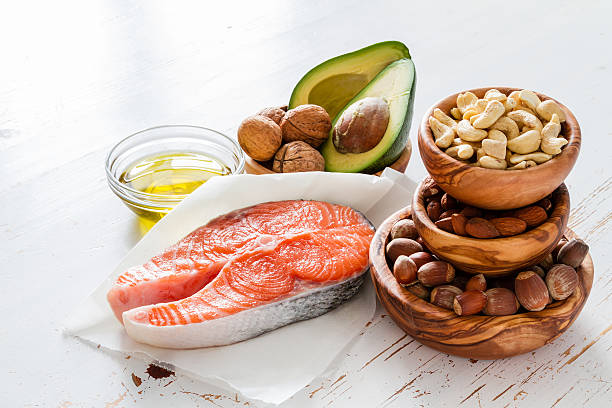
The Importance of Healthy Fats in Your Daily Diet
Share
When it comes to maintaining a balanced and nutritious diet, fats often receive a bad reputation. In fact, many people are quick to eliminate fats entirely from their meals, believing they contribute to weight gain and poor health. However, not all fats are created equal, and incorporating the right types of fats into your daily diet is essential for overall well-being. Healthy fats play a crucial role in supporting numerous bodily functions, from heart health to brain function. Understanding the importance of these fats and how they benefit your body can help you make better dietary choices.
Healthy fats, such as those found in avocados, olive oil, nuts, and fatty fish, are loaded with essential fatty acids, including omega-3 and omega-6. These fats are vital for numerous bodily functions, starting with heart health. Unlike trans fats and saturated fats, which can increase bad cholesterol levels and raise the risk of cardiovascular disease, healthy fats can actually help reduce bad cholesterol levels, thereby improving heart health and lowering the risk of stroke and heart disease. Unsaturated fats, especially monounsaturated and polyunsaturated fats, help maintain healthy blood vessels, improve blood flow, and support proper heart function.
In addition to supporting heart health, healthy fats are also essential for brain function. Your brain is made up of nearly 60% fat, and fat is required to maintain healthy brain cells. Omega-3 fatty acids, in particular, play a pivotal role in cognitive health, supporting memory, mental clarity, and focus. Including foods such as fatty fish (like salmon), flaxseeds, and walnuts in your diet can help enhance brain function and potentially lower the risk of cognitive decline and mental health disorders like depression and anxiety.
Another important benefit of healthy fats is their role in the absorption of essential vitamins. Vitamins A, D, E, and K are fat-soluble, meaning they need fat to be absorbed and properly utilized by your body. Without adequate fat intake, you may not be getting the full nutritional benefits from these vitamins, which play critical roles in maintaining healthy bones, skin, immune function, and overall vitality. By adding healthy fats like olive oil or avocado to meals that contain these vitamins, you’ll ensure better absorption and greater health benefits.
One of the often-overlooked benefits of healthy fats is their ability to keep you feeling full and satisfied. Unlike carbohydrates, which can cause blood sugar levels to spike and crash, fats provide a more steady and sustained source of energy. When you incorporate healthy fats into your meals, such as in a salad with olive oil or a handful of nuts as a snack, you’ll feel fuller for longer, reducing the likelihood of overeating or snacking on unhealthy foods. This can be particularly beneficial for those looking to manage their weight or improve overall portion control.
Healthy fats also contribute to healthy skin. Omega-3 fatty acids, in particular, are known for their anti-inflammatory properties, which can help reduce skin irritation, redness, and conditions like acne or eczema. Healthy fats keep the skin hydrated from within, promoting a healthy, glowing complexion and reducing the risk of dryness and irritation.
Incorporating healthy fats into your diet doesn’t mean indulging in unhealthy, calorie-dense foods. Instead, focus on nutrient-rich sources such as avocados, olive oil, fatty fish, nuts, and seeds. These fats support your body in a variety of ways, from boosting heart and brain health to promoting better digestion and glowing skin. The key is balance—ensuring that you include healthy fats in moderation while maintaining a well-rounded diet that meets all your nutritional needs. By doing so, you can nourish your body and set yourself on a path to long-term health and wellness.
Get more knowledge about eating healthy, please refer to The Mediterranean Diet for Beginners.
